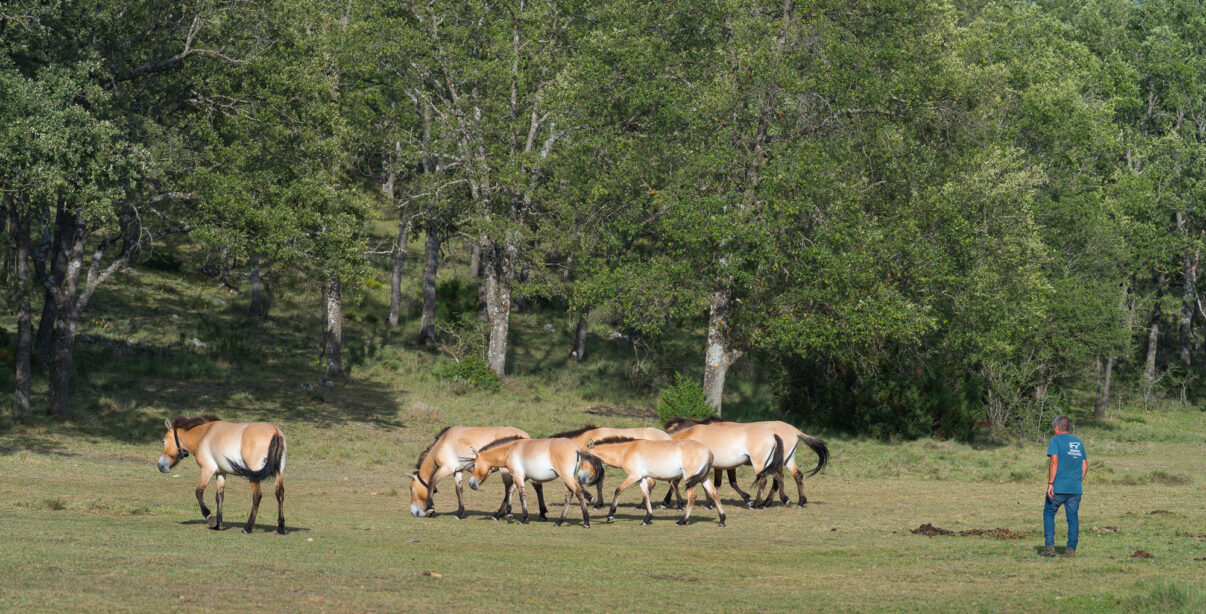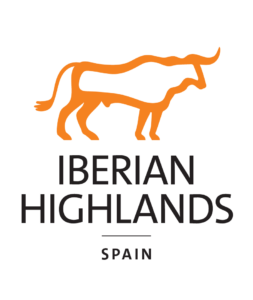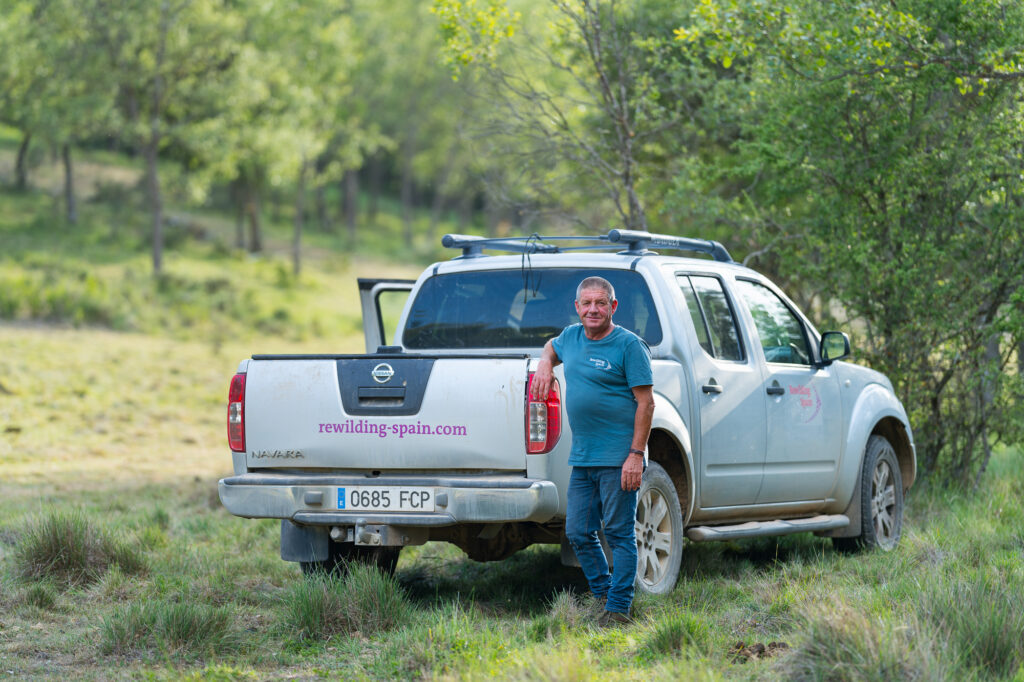In May, a herd of 10 Przewalski’s horses arrived in Spain’s Iberian Highlands. Pablo Villa, who manages the herd as member of the Rewilding Spain team, reflects on the joy of his new role, and the beneficial presence of this majestic animal in the rewilding landscape.

Realisation of a dream
Born and raised in Villanueva de Alcorón in Spain’s Iberian Highlands, 57 year-old Pablo Villa has spent almost all of his life around horses. While living in this picturesque village in the province of Guadalajara he owned his own horse breeding and food supply business, but left at the age of 30 when it became unprofitable. When offered the opportunity to return home to manage a herd of majestic Przewalski’s horses, it was a straightforward decision to say yes.
“I didn’t have to think for more than a second,” says Villa with a gentle smile. “Coming back to the place where I grew up was something I’ve dreamed of for a long time. I’ve devoted most of my years to horses and their welfare, so to be able to work with Przewalski’s horses – the world’s last truly wild horse – and to bring my family back here to Villanueva de Alcorón to live, was something magical. It was a dream come true.”

Seeing the benefits
Pablo Villa’s life-changing opportunity came about thanks to the efforts of the Rewilding Spain team. In May, a herd of 10 Przewalski’s horses arrived in the Iberian Highlands rewilding landscape in Spain, where they are now being kept in a 20-hectare acclimatisation enclosure. They will soon be released from the enclosure and allowed to range across 5700 hectares of forested landscape – the first time that this iconic and endangered subspecies of wild horse has ever roamed freely across such an extensive area in Western Europe. In doing so, they will help to reduce the risk of wildfire, enhance biodiversity, boost nature-based tourism and environmental education, and improve the animal’s conservation status.
“I’m expecting the horses to have a really positive impact,” says Villa. “Because of rural depopulation a lot of the landscape here has been abandoned. Without grazing by livestock a lot of combustible vegetation has built up, which causes a huge problem with catastrophic wildfires. The Przewalski’s horses will help to clear this scrub and reduce the fire risk.
“In addition, the horses can eat branches from trees and very rough vegetation. This is already helping finer grass to grow, which attracts other wild species such as red deer and roe deer. This keeps farmers happy, as the deer aren’t eating their crops. And the dung from the horses is supporting the presence of dung beetles and other insects, which means I can already hear more birds. The whole landscape is healthier.”

Wide-ranging responsibilities
Pablo’s tasks as herd manager include monitoring the movement of the Przewalski’s horses. The data collected will give the Rewilding Spain team a better understanding of the relationship between the way the animals feed and move, and their impact on the landscape. In addition, he ensures there are sources of water available for the horses, looks for signs of potential poaching activity, and generally keeps an eye on the health of the animals. With the horses currently living in the 20-hectare enclosure, he is also responsible for fence maintenance. In addition, he regularly communicates with local residents and visitors about the horses and their beneficial role in the landscape.
“People really love the story of these charismatic animals,” says Villa. “The attraction will be even greater next spring, when we have foals born here for the first time. These horses really are wild and are very strong – there is no need to use medicines to keep them healthy and they cope well with extreme temperatures.”

Positive prospects
Although Pablo has only been working directly with the Przewalski’s horses since May, he is already excited about how things are working out.
“We expect to bring in more horses and grow the herd to 130 or 140 animals,” he explains. “Smaller herds will then develop and spread across the landscape, thereby scaling up the positive ecological impact. This area will then become truly unique. The horses will attract more visitors, who will spend money in guesthouses and restaurants and help to revitalise the local economy, which has really suffered as a result of rural depopulation.”

Pablo sees the horses, and rewilding in general, offering a new future for Villanueva de Alcorón and the surrounding area.
“These horses are changing my life,” he says. “Rewilding is gradually providing more and more opportunities for people to come back to local villages that have mostly been abandoned and where there aren’t many ways to earn a living. My job with the horses means that soon my wife might open a shop and my daughter might open a hairdressing salon. I’m so happy with and proud of this initiative, and the rewilding efforts of my teammates. They have filled me with hope for the future.”
